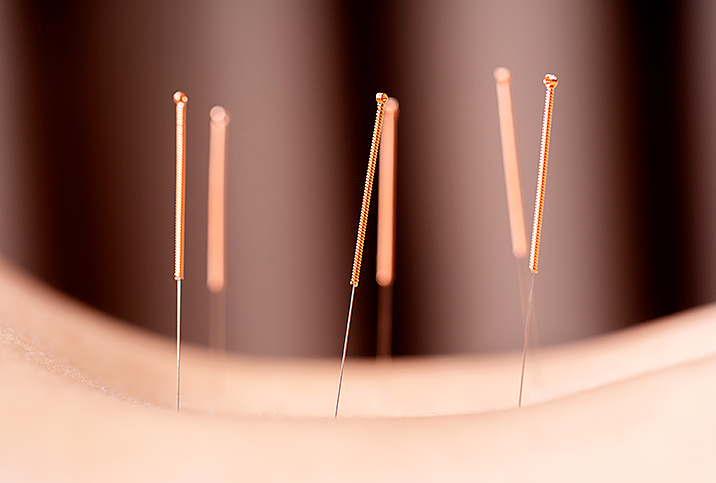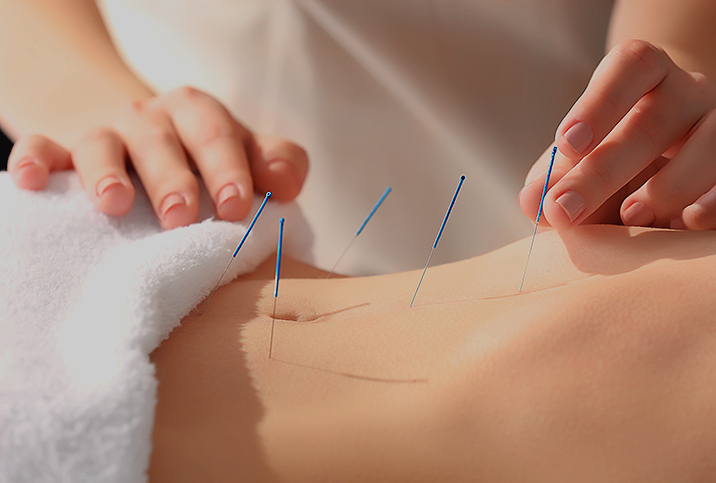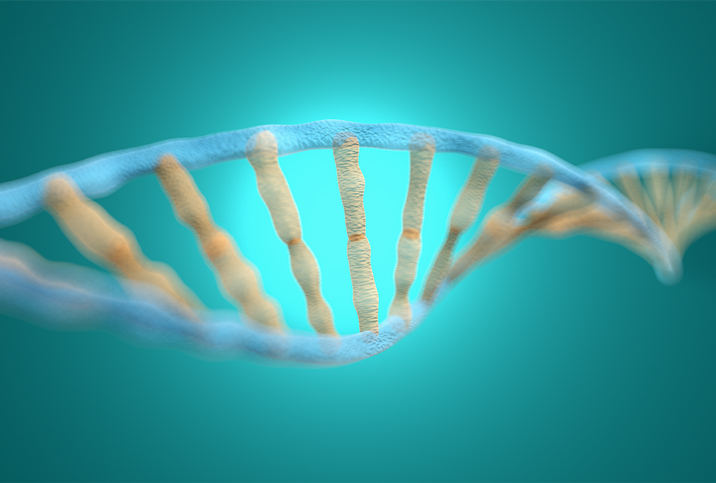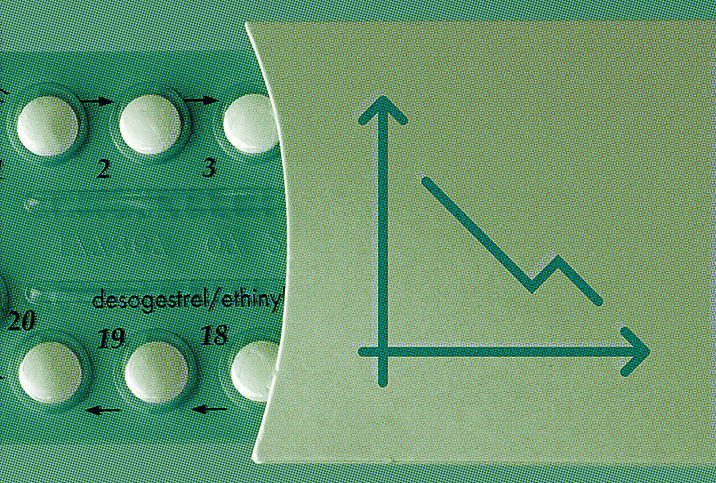Using Acupuncture for Ovarian Cancer Pain Management

At the Ovarian Cancer Research Alliance's (OCRA) 2021 national conference, experts weighed in on important developments in the field, including updates in research and treatment, nutrition advice, sexuality and intimacy, precision medicine and, notably, acupuncture as a pain treatment method.
Acupuncture is a form of traditional Chinese medicine (TCM), which has been subjected to stereotyping over the years, particularly through terms such as "exotic" or claims that it is unregulated, outdated or not backed by research.
In truth, the practices of TCM have evolved and been studied over thousands of years, including clinical trials that test the efficacy of techniques. In fact, researchers have found some TCM practices, such as acupuncture, tai chi and some herbal medicines, can provide benefits in certain situations.
How does acupuncture work?
"There is a lot that can be done with acupuncture for supporting the immune system, easing pain and discomfort, and working with the neuropathy symptoms, nausea and fatigue that come with chemotherapy," said Los Angeles-based licensed acupuncturist and wellness counselor Donnielle James, a cancer survivor who spoke at OCRA's conference
Essentially, acupuncture works by identifying parts of the body that, when pressure is applied, are believed to stimulate the central nervous system, releasing chemicals into the muscles and spinal cord. At least, that's how Western medicine defines it.
In TCM, however, this is expressed differently.
"There's a meridian system in Chinese medicine," James explained. "There are 12 primary channels that run through the body, and there are different systems and networks that all connect with different organs. And any time there's an incision or something is removed, the energy of the organ—this is where it starts going off into other-worldly language."
She laughed but acknowledged this is the way many people view Chinese medicine. Using words such as "qi" (energy) or "channels" might invoke comparisons to astrology or magic, but she cautioned not to get too hung up on the terminology.
Acupuncturists identify particular points along channels of qi within the body, and these points are often aligned with nerve endings in surprising ways. James identified an example where a patient might have front-end pelvic pain, which is alleviated when points in the lower back are stimulated.
In traditional Chinese medicine, it's all about understanding how energy flows through the body and restoring broken connections between points.
"It's interesting because there are certain points in the body with certain functions, but many of them translate well over to Western practice really well," James said.
The effects of ovarian cancer
Ovarian cancer is a growth of cells within the reproductive system that can rapidly multiply and wreak havoc on the body.
The symptoms of ovarian cancer are often nonspecific, including bloating/abdominal distension, nausea, vomiting, decreased appetite and early satiety, constipation, pelvic pain and increased urinary frequency, said Sarah Taylor, M.D., gynecological oncologist in the UPMC Hillman Cancer Center at UPMC Magee-Womens Hospital in Pittsburgh.
She said the most prominent methods of treating ovarian cancer are surgery and chemotherapy.
"Fortunately, ovarian cancer is sensitive to frontline chemotherapy in approximately 75 percent of women, so between chemotherapy and surgery, most women will be without evidence of disease when they complete their primary treatment," Taylor said.
"Unfortunately, relapses occur in an equal percentage, leading to an approximate 40 percent five-year overall survival," she continued. "However, if we can diagnose ovarian cancer when it is stage I disease, five-year overall survival rates are greater than 90 percent."
While this is good news for patients with ovarian cancer, these treatment options aren't without side effects. Chemotherapy, in particular, can instigate a host of side effects, including:
- Fatigue
- Nausea and vomiting
- Diarrhea
- Appetite loss
- Hair loss
- Skin and eye changes
- Pain
- Memory issues
- Sexual problems
Of course, all of these side effects are preferable to cancer, but none are especially pleasant, either. This is where traditional Chinese medicine, and acupuncture specifically, can be a highly appealing option for patients.
"When I've had patients come in who are going through chemo or living with cancer, we're looking at the side effects, the pain, the palliative care or sometimes at supporting the immune system," James said. "With cancer patients, that varies drastically. Some people might have a lot of pain from their tumors, and some might not. Some people might have a lot of pain from their treatment. We're going to base the treatment, really, on what somebody's coming in with that day and how we can best support the patient."
Additionally, James has helped patients not just with physical symptoms, but with psychological ones, as well.
Many cancer patients go through a variety of emotions, especially anxiety, depression, grief and brain fog, and studies indicate acupuncture can provide effective relief from these symptoms.
Perhaps the idea of someone sticking you with a bunch of needles isn't appealing—though James pointed out these needles are sterile and most are as thin as a hair—but this is another perception that's skewed by a Western understanding of TCM. Yes, one form of acupuncture involves using needles, but there are other forms of acupuncture that don't.
One method James mentioned is called "acupressure," which she taught to patients while coaching virtually in the early days of the pandemic, showing them how to identify points on their bodies where they could apply pressure to help alleviate symptomatic pain.
The future of ovarian cancer treatment
James, a Los Angeles native, also mentioned that several hospital systems around her, namely, UCLA Health, have begun offering inpatient acupuncture for multiple conditions, including cancer-related pain, depression and anxiety.
Even better, insurance might cover the treatment.
"Insurance will cover nausea specific to patients going through chemotherapy with nausea or pregnancy and morning sickness. That was one of the...things I wanted to convey: You might be surprised you could actually go get insurance coverage for the nausea or the pain," James said.
Taylor mentioned another recent development in ovarian cancer treatment: poly-adenosine diphosphate-ribose polymerase (PARP) inhibitors. Essentially, these are drugs that create "synthetic lethality" in cancer cells by preventing their ability to heal and repair themselves.
"There is a lot of ongoing research looking at the utility of immunotherapy in ovarian cancer," she said. "We have yet to figure out the best way to use this type of approach, but ongoing research is helping define this treatment strategy for our patients."
As researchers continue to develop new methods of combating cancer, more hospitals are beginning to embrace certain traditional Chinese medicine methods, as well, especially as ongoing research validates these techniques.
The result is a more patient-centric combination of Eastern and Western schools of thought. We know chemotherapy is effective in treating cancer, but now patients are also being offered new (well, thousands of years old, really) ways of managing the side effects of that treatment.


















